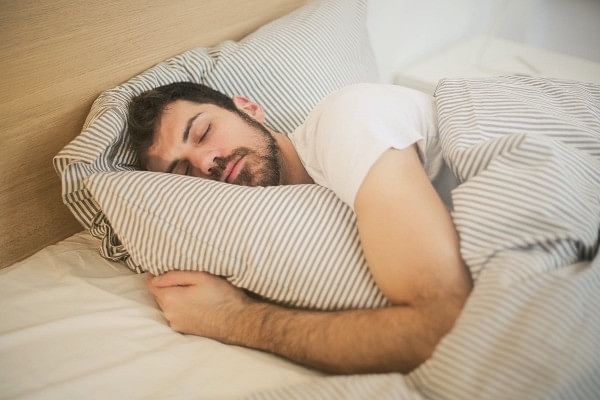For appointments, call (225) 292-6991. Serving Baton Rouge, Gonzales, Denham Springs, and New Roads

What is Sleep Apnea?
Sleep apnea is a serious condition where breathing stops repeatedly during the night. If you loudly snore and frequently feel tired even after sleeping for several hours, then you could have sleep apnea.
Types of Sleep Apnea
Obstructive Sleep Apnea: This is caused when the throat muscles become too relaxed and then block your airway; it’s the most common type of sleep apnea.
Central Sleep Apnea: this happens when the brain fails to send the correct signals to the muscles that influence breathing, causing irregularities.
Complex Sleep Apnea Syndrome: this type of sleep apnea happens when someone has both obstructive and central sleep apnea symptoms. Also called treatment-emergent central sleep apnea, it can be the most difficult kind to address.
Symptoms of Sleep Apnea
The symptoms for different types of sleep apnea are frequently similar to one another, making it important to receive a proper diagnosis from an expert. These symptoms can include:
- Snoring loudly
- Irritability
- Easily distracted
- Hypersomnia
- Insomnia
- Morning headaches
- Dry mouth after waking up
- Gasping for oxygen during sleep
- Periods of no breathing during sleep, typically observed first by a second party
When to See a Doctor for Possible Sleep Apnea
If you’ve been keeping your family awake at night with loud snoring or have been having bouts of sleep-deprived irritability, it’s a good idea to reach out to your local sleep apnea specialist for further research. Sleep apnea is a treatable condition, and waiting to get proper treatment can result in potentially disastrous effects for your body and mind.
Who Gets Sleep Apnea?
Different types of sleep apnea can be caused by a wide variety of risk factors.
Obstructive Sleep Apnea
- Nasal congestion
- Old age
- Family history
- Naturally narrow airway
- Thick neck circumference
- Excess weight
- Using alcohol
- Drug/tranquilizer abuse
- Smoking
- Congestive heart failure
- Type 2 diabetes
- Parkinson’s disease
Central Sleep Apnea
- Being male
- Being older
- Having a heart disorder
- Use or abuse of narcotics
- History of stroke
Treatment for Sleep Apnea
Lifestyle changes such as losing weight and quitting smoking are adequate for most mild forms of sleep apnea. Having your allergies treated will also improve your sleep apnea symptoms.
For more severe cases, there are a wide variety of therapies and interventions available such as:
- CPAP Machines: continuous positive airway pressure devices change the air pressure around your nose and mouth to help keep your upper airways open to prevent apnea and snoring. The most common and reliable method for treating sleep apnea, but diligence is needed to maintain it and use it regularly.
- Oral Appliances: orthodontists are able to treat sleep apnea with appliances to help keep your throat open. Sometimes easier to use than CPAP machines, these appliances bring the jaw forward to reduce obstructive sleep apnea. Followup is important to guarantee proper fit and longevity as the years pass.
- Supplemental Oxygen: central sleep apnea can be treated with extra oxygen while sleeping. There are different options for devices that can help deliver extra air to your lungs; your doctor can help you select the best one for your needs.
- Jaw Surgery: your upper, lower, or both jaws can be moved forward from the remainder of the bones of your face to enlarge your soft palate and the space behind your tongue. This reduces chances for obstruction and is known in the medical field as “maxillomandibular advancement.”
- Implants: implants can be used in the area of the soft palate with the help of a local anesthetic before insertion. They can also be used to stimulate nerves with the help of an electric stimulator that affects the nerves controlling tongue movement.
Sleep Apnea Treatment Is Possible!
Don’t settle for getting poor-quality sleep, especially in the modern world that expects so much from us. At Fruge Orthodontics, we have your back, and our kind staff is ready to help you with your sleep apnea appointment. Call or email today for more information about treating your sleep apnea for good!
